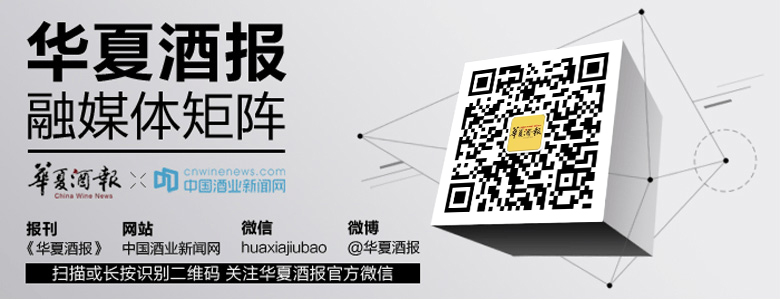Ma Chaoxiang was farming in the vineyard on the Tibetan plateau when he heard the Australians were coming. It was May and China’s borders were closed, but the 47-year-old was suddenly asked to tidy up the workshop and clear the roads coming up to the winery.
The winemakers that travelled to Qinghai were on a mission. They had become collateral damage in a bitter 18-month dispute between Canberra and Beijing culiminating in Canberra’s call for an independent probe into the origins of the coronavirus pandemic. Australia’s winemakers needed to find a path through the diplomatic mess.
In December, thousands of litres of Australian wine were stopped from entering Chinese ports over “cork mildew”. In January more than 23,000 litres of wine was blocked over “labelling issues”. By March, China’s Commerce Ministry said it would impose anti-dumping tariffs of up to 218 per cent on Australian wines for five years.
The message from Beijing was clear: Australian wine was not coming back into its biggest market for the foreseeable future.
High on the eastern foothills of Helan Mountain and up from the banks of the Yellow River in northwest China, the representatives from two of Australia’s biggest winemakers - Treasury and Accolade- were looking for a way around the blockade. The tariffs applied to Australian bottles being exported from Australia, not Australian-branded wine produced in China or elsewhere.
The vineyards they visited are some of the most promising in China’s nascent wine industry. Locally the area is called a “golden belt area for grape growing”. In Qinghai the grapes are irrigated with fresh water from the Yellow River and cooled by the morning fog that sweeps through the valley. Ningxia, the province nearby, is described as the Bordeaux of the East. But China’s vineyard owners have struggled to get a foothold in a country that is still dominated by imported European, South American and before tariffs knocked them out of the country - Australian wines.
The Chinese wine producers said despite the substantial difficulties in the diplomatic relationship, a partnership with an Australian wine giant would be a win-win. They rolled out the welcome mat. So did the local government officials, keen for a business boost in areas that have struggled economically throughout the coronavirus pandemic.
“A couple of days before their arrival, we were asked to clean up the workshop and roads here,” Ma said in Qinghai. “After the visit, Baojialong [the winery] told us that this year is promising and don’t worry about money.”
At Helan Hong Winery in Ningxia a similar story emerged. “There was an Australian delegation who visited our company in May to discuss cooperation,” said one employee who asked not to be identified because they were not authorised to speak publicly.
Ma Rui, the manager of Xige Estate in Yongning County said Treasury, one of the world’s largest wine companies and the producer of the Penfolds label had “docked with wine-industry-related government departments and visited some wineries in the region”.
Ma was excited by the prospect of working more with the Australians. “Its style better fits Chinese consumption. Unlike the delicate European dining style, the Australian style is more free and open. An open drinking environment requires less preparatory or ceremonial procedures to enjoy the wine,” he said.
Ma said China was in an entirely different stage of its wine evolution. “Even the youngest wine-producing countries, such as Australia, New Zealand, Chile, South Africa have more than 100 years of wine-making history,” he said.
“We need to master them within 10 to 20 years. Thus, modern management is a must. Australia is very powerful at agricultural modernisation. It produces very good standardised wines and is our strong future reference.“
Ding Lifei, the president of Baojialong winery was optimistic. She said Accolade intended to “hold 40 per cent of our company’s shares after 12 months of consideration period”.
The local Qinghai Department of Commerce was also convinced. It said Accolade aimed to “make a strategic investment” in Baojialong winery to “jointly promote brand promotion and expand production scale.”
But five months on, no partnerships have been signed and the workers who prepared the vineyards for the Australian visitors remain out of pocket.
“Negotiations broke down,” said Ding, speculating that despite the optimism the tariffs and high barriers to entry had taken their toll on Accolade.
The workers say Baojialong winery is now struggling to stay afloat. “The company has no money now,” said Ma. “It neither paid for the villagers land contract nor the labour contract.”
The Baojialong Vineyard has struggled to say afloat despite favourable conditions.
The Baojialong Vineyard has struggled to say afloat despite favourable conditions. CREDIT:SANGHEE LIU
Ding laments that she would like her daughter to carry on the business but without foreign investment, China’s young wine industry is unlikely to make a dent despite the huge domestic demand for wine.
“We’ve been recording a deficit so far, and I sometimes think of withdrawal. We have the spirit of craftsman and try to make the best quality products,” she says. “The quality of our wines can compete with top French Chateaus in 4 to 5 years. But if the government doesn’t support us, allowing mass-scaled imported wines, what can we do?”
Accolade Wines and Treasury declined a request for an interview. Peter Dixon, managing director of Accolade Wines Asia said in a statement that the company has long-established commercial relationships in China.
“We are always open to investigating opportunities to grow the Accolade Wines business around the world, however, we can confirm that there is no planned investment in a winery within China,” he said.
Where the Bali hell are ya? International tourism push plays to empty airport
For now, the big Australian winemakers have their eyes on other ways into the $52 billion market. Accolade is considering launching an initial public offering in Hong Kong and a Treasury spokeswoman highlighted its plans to launch Australian brands with wine sourced from the US and Africa.
“In Mainland China, [Treasury] will continue to invest in the portfolio,” Treasury’s annual report said. “[The second half of 2021] highlights including the launch of the Penfolds Californian Collection and the release of Rawson’s Retreat sourced from South Africa.”
Matthew Reeves, a senior analyst with IBISWorld, said despite the workarounds “prospects for the Australian wine industry in China look bleak in 2021-22 ” .
Australia’s competitors have not wasted any time trying to snap up market share. France’s slice grew from 28 per cent to 35 per cent in the six months to June, Shanghai research firm Nimbility told Forbes. At the same time, Chile rose from 16 per cent to 23 per cent.
Australia, which had 40 per cent of the import market value this time last year now only has 6 per cent. “When Australia withdraws Chile and Argentina will march in,” said Ma.

